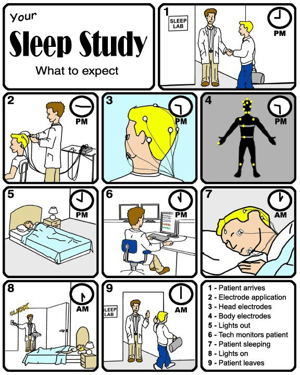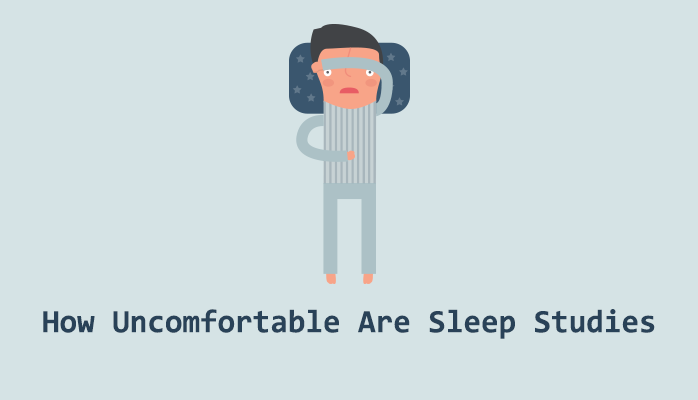What is a Sleep Study?
A sleep study, also called a polysomnogram (PSG), is a non-invasive study conducted at a sleep center. Sleep specialists monitor your sleeping, via PSG equipment ,in order to assess what kind of sleep quality you are getting and, where applicable, any sleep disorders you may be dealing with.
During a sleep study, many aspects of your sleep will be evaluated and monitored, such as:
- Brain wave activity
- Eye movements
- Breathing
- Muscle contractions
- Heart Activity
- Blood oxygenation
Results from your sleep study are analyzed by sleep physicians and sent to your healthcare practitioner to review with you.
Why Get a Sleep Study
For most people, a sleep study is an critical part of getting a diagnosis for a sleep disorder. The first step is usually that you and/or your healthcare practitioner will notice red flags for sleep disorders, which often are a result of sleep deprivation or other symptoms of specific sleep disorders.
You can then contact us and we can walk you through the process to get started, or you can consult healthcare practitioner, in which case they will then likely seek a diagnosis before moving forward with treatment options, giving you a referral to our sleep center for a sleep study.
After the sleep study, your healthcare practitioner will have a much better idea of what treatment to pursue depending on the results from the study.
How Uncomfortable are Sleep Studies
Sleep studies are as non-invasive as possible. The most uncomfortable part for most people should be being attached to sleep monitoring equipment, but most people do not find this to be uncomfortable, at least not enough to prevent them from getting good sleep.
Beyond this, sleep studies are designed to be as comfortable than your own sleeping environment:
- You have your own sleeping room
- You have your own bathroom
- It will be dark and quiet
- The accommodations will be comfortable
Sleep centers have many decades of experience creating comfortable sleep environments, using comfortable and proven techniques.
What if You Can't Sleep During Your Sleep Study
This is a common question people have, but it is almost never a problem. The reality is that you, like everyone else, will likely have little to no more difficulty falling asleep during a sleep study than at home.
Of course, sleep centers are also prepared with other options to help you begin sleeping on the slim chance that you are having difficulty. You can easily do research on online forums and you will see that, while people don't always "love" their sleep study, difficulties falling asleep isn't a common issue.
That being said, there are certainly things you can do to prepare for your sleep evaluation and make yourself as comfortable as possible.
How to Prepare for Your Sleep Study
 There are simple things you can do the day of your study to ensure that your sleep evaluation goes as seamlessly as possible:
There are simple things you can do the day of your study to ensure that your sleep evaluation goes as seamlessly as possible:
- Avoid naps that day
- Avoid alcohol, tobacco, and caffeine
- Try and get some exercise in the earlier part of the day
- Avoid eating directly before your study
- Bring your sleep comforts, such as a pillow, blanket, etc.
It's fairly straightforward and, outside of missing your morning cup of coffee or nightcap before bed, preparing for your sleep study will ideally be "business as usual" for you.
If you live in Alaska and need a sleep study, or think that a sleep study may help you identify existing sleep conditions, please feel free to contact us to see how to start the process with getting a sleep evaluation:
How Can You Be More Comfortable for Your Sleep Study
The best thing you can do to be more comfortable during your sleep study is to simply pretend you are going to spend the night at a spa (remember, you have your own private room at the sleep center):
- Where comfortable night time clothing
- Bring any extra comforts, such as a special pillow or blanket
- Engage in your normal pre-bedtime routine
- Take regularly prescribed medications
In other words, you can do most anything that you might normally do at home to be comfortable for sleep.


